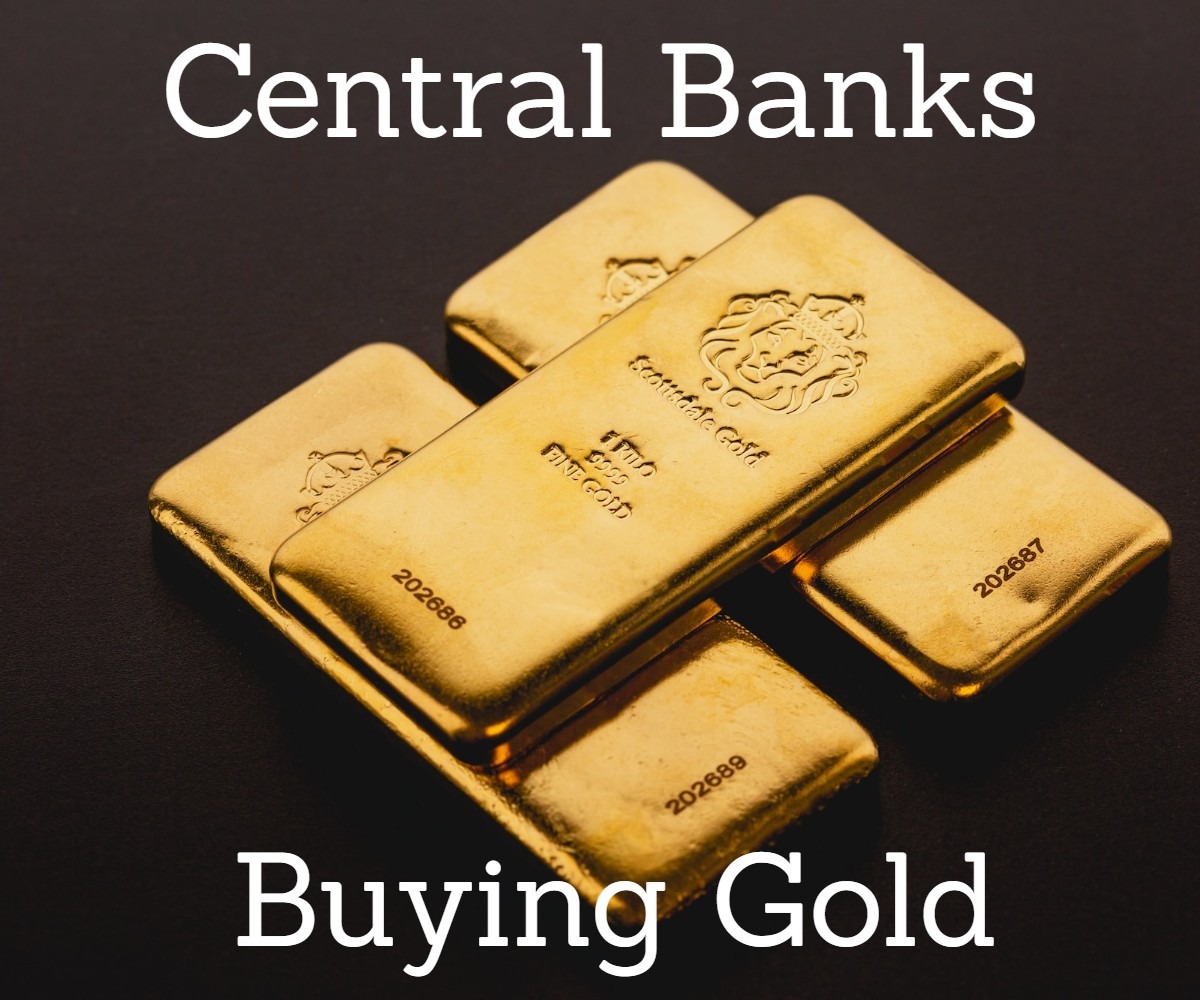Bellevue 425-454-1283 · Lynnwood 425-672-2646 · Issaquah 425-392-0450 · Tacoma 253-328-4014

There’s a whole lot of gold in the world – about 244,000 metric tons discovered so far, to be exact. That’s around 538,020,000 pounds of gold, or around 7,846,125,000 troy ounces.
In dollar terms, that amount of gold would be worth $14,319,178,125,000 (that’s $14.3 trillion dollars).
A mind-boggling quantity of gold, to be sure. But where does all that gold go?
The answer is, it’s complicated. Lots of gold goes into jewelry, precious metal coins, and bullion held by everyday investors. Some is used in industry. Some is still underground, discovered but yet to be mined and refined.
But a significant portion winds up sitting in the reserves of central banks. Why do central banks buy gold? And how does the role of central banks like the Federal Reserve affect gold prices?
First, it’s helpful to discuss what a central bank is, what they do, and why they matter.
Most countries have a central bank. The central bank is tasked with managing the money supply, setting interest rates, protecting the country’s currency, and in some cases, regulating the financial markets.
In the United States, the central bank is called the Federal Reserve (aka the Fed). You’ve surely heard talk about the Fed in context of inflation and interest rates, but the Federal Reserve serves many important roles.
One of the primary purposes of the Federal Reserve (and most other central banks) is to maintain financial reserves. Reserves are simply stockpiles of currency (both US and foreign) and other assets that are used for monetary policy goals and to stabilize the economy.
It’s in maintaining reserves that gold plays a key role – we’ll explain why below.
Central banks own huge quantities of gold because of gold’s role as a reserve asset.
Let’s look at the Federal Reserve, America’s central bank, as an example.
The Federal Reserve holds approximately $8 trillion dollars worth of assets in total. While much of these assets are held in treasury securities and mortgage-backed securities purchased through Quantitative Easing, the Fed also has significant reserve assets.
Reserves include foreign reserves (money in other currencies), like Euros, Francs, Yen, and various other world currencies. The Fed holds these foreign currencies as a way to back up liabilities (debts) and provide stability.
The idea is simply to diversify. The Fed wants to protect America’s wealth (and those it owes money to) from fluctuations in the Dollar’s value. If the US Dollar were to be suddenly devalued, the Fed could use its foreign reserves to repay debts, prop up the value of the dollar, and influence monetary policy.
But what about gold?
Gold has long been considered a powerful diversification tool. Just like many investors choose to hold gold in their investment portfolios, the Federal Reserve holds gold in order to achieve its policy goals.
Consider the benefits of gold, from the perspective of the Fed:
For these reasons, the Federal Reserve holds significant quantities of gold in its reserves.
In most democracies, the central bank operates semi-autonomously from the central government. And while central banks are significant owners and buyers of gold, governments themselves also purchase and store gold.
Governments own gold for reasons of national security, exchange enablement, and value creation, among others. Governments also use gold to mint coins and bars through their mint programs.
In the US, the government owns far more gold than the central bank does. Data from 2021 shows that:
If you invest in gold, what does all this information actually mean for you? Well, central banks buying gold means a few things:
Central banks own gold because it’s a powerful store of value, an inflation hedge, and a cross-border, cross-currency means of exchange.
All those same reasons make gold a compelling asset class to consider for everyday investors.
If you’re ready to build your own gold reserves, Bellevue Rare Coins is the best place to buy.
Our wide selection of investment-grade bullion is priced at industry-leading premiums. And our four convenient Seattle-area locations (Tacoma, Bellevue, Lynnwood and Issaquah) are staffed with friendly and knowledgeable associates who are waiting to help you. Whether you’re buying a 1/4 oz or 10 kilos of gold, Bellevue Rare Coins is the premiere destination in the Pacific Northwest.